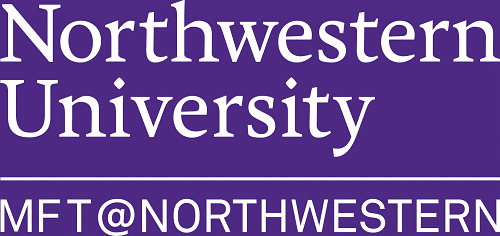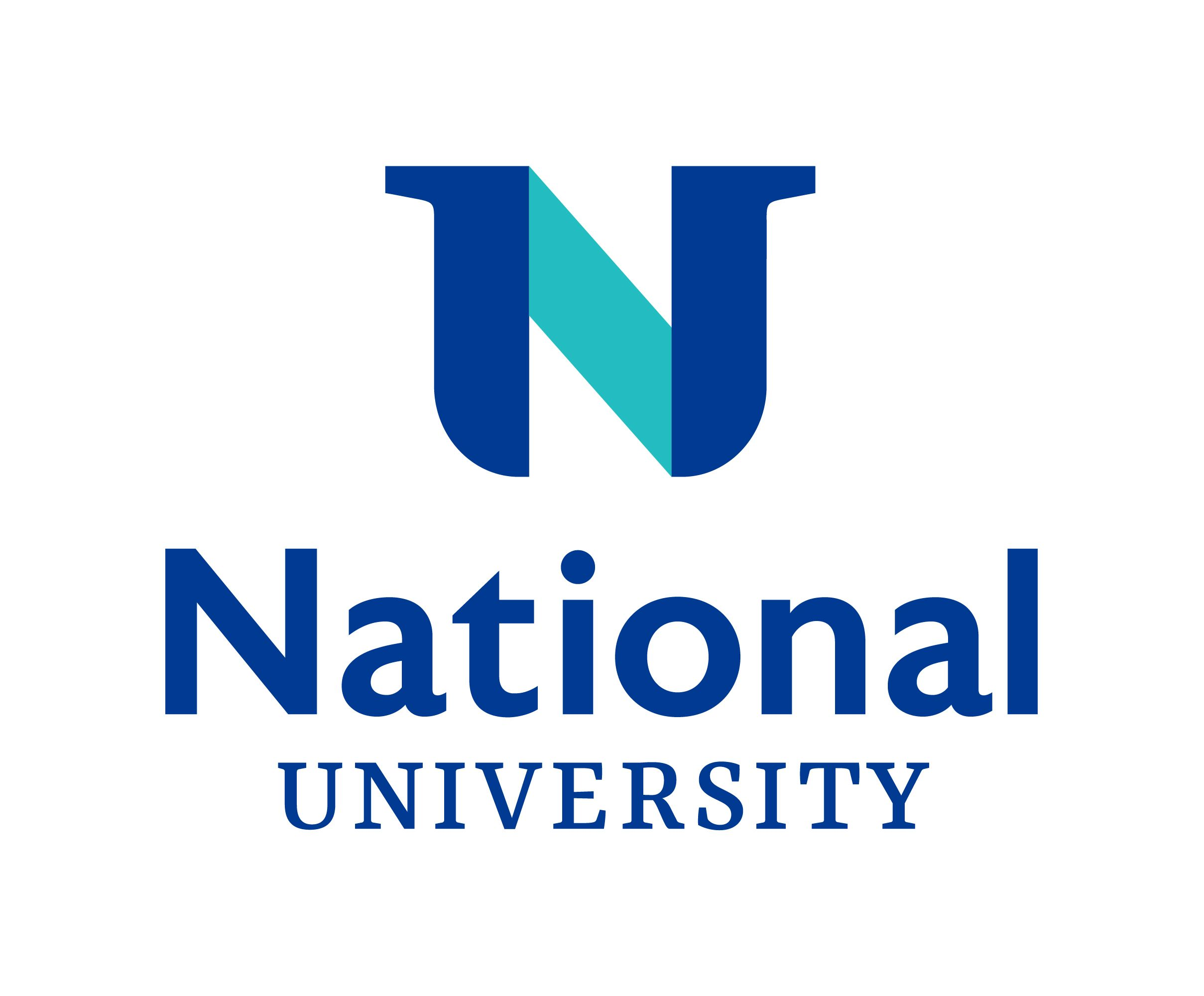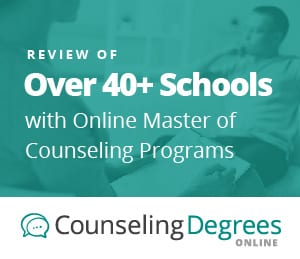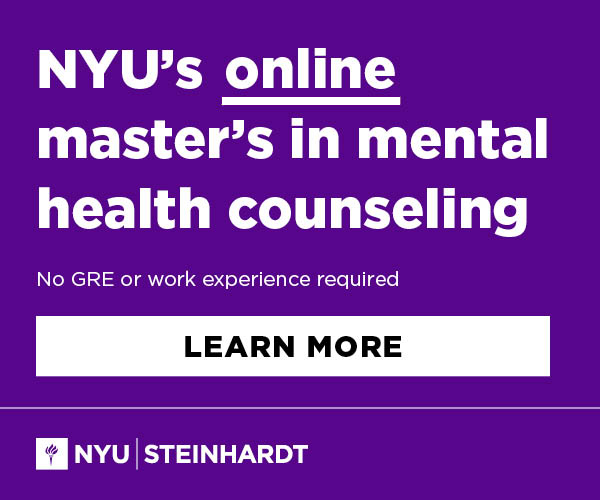What Is a Licensed Professional Counselor (LPC)?
A Licensed Professional Counselor (LPC) is a mental health professional who provides counseling services to individuals, families, and groups. Trained in various therapeutic techniques, LPCs address a wide range of mental health issues, from anxiety and depression to relationship challenges and life transitions.
To become an LPC, one must complete a master's degree in counseling or a related field, accrue supervised clinical experience, and pass a state licensure exam. This designation is not just a title but a commitment to ethical practice, ongoing education, and a deep understanding of human behavior and mental health.
Consider a Featured Online Counseling Program
| School and Program Information | Online Program? Entry Requirements |
Course Information |
|---|---|---|
| Northwestern University
Master of Science in Marriage and Family Therapy
COAMFTE Accredited |
✔ Online
GRE Not Required Bachelor's Required |
The COAMFTE-accredited MFT@Northwestern is offered by The Family Institute at Northwestern University. Full-time students can complete the program in as few as 21 months. No GRE is required, but applicants must hold an undergraduate degree. Full and part-time tracks available. Learn More |
| Northwestern University
Online MA in Counseling
 CACREP Accredited CACREP Accredited |
✔ Online
GRE Not Required Bachelor's Required |
Prepare to pursue licensure in as few as 18 months Learn MoreFull-time, part-time, and accelerated track options available |
| Walden University
MS in School Counseling
 CACREP Accredited CACREP Accredited |
✔ Online
GRE scores not required |
School counselors help students overcome obstacles and shape successful futures. Walden’s online MS in School Counseling program will give you a solid foundation in school counseling theories, approaches, and best practices while enabling you to gain hands-on experience. Learn More |
| Walden University
MS in Clinical Mental Health Counseling
 CACREP Accredited CACREP Accredited |
✔ Online
GRE scores not required |
Mental health counselors play a valuable role in helping people cope with life’s challenges. Walden’s online MS in Clinical Mental Health Counseling program can help you become the competent, compassionate counselor you know you can be. Learn More |
| National University
Master of Science in Clinical Mental Health Counseling
WSCUC Accredited |
✔ Online
GRE Scores Not Required |
The Master of Science in Clinical Mental Health Counseling is focused on training highly skilled counselors to provide impactful and culturally sensitive mental health services in their communities. Learn More |
| Grand Canyon University
Master's Degree in Counseling
HLC and NASAC Accredited |
✔ Online
|
Clinical Mental Health Counseling master's degree emphases include: Childhood and Adolescence Disorders, Christian Counseling, Marriage and Family Therapy, and Trauma. Designed to meet the academic requirements of the National Board for Certified Counselors for the National Certified Counselor credential, the Certified Clinical Mental Health Counselor credential and the Arizona Board of Behavioral Health Examiners. As a private university, GCU has the same in-state and out-of-state tuition. Learn More |
| Liberty University
MA: Clinical Mental Health Counseling (CACREP Accredited)
 CACREP Accredited CACREP Accredited |
✔ Online
Online with required intensives |
Our CACREP-accredited master’s in counseling degree online can help you become an ethical, well-trained mental health counselor with the knowledge, values, and skills you need to empower others to make positive changes in their lives. Online and on campus. Training Champions for Christ since 1971. Learn More |
| Pepperdine University
Master of Arts in Psychology
Open to all undergrad majors |
✔ Online
No GRE Required |
Earn a Master’s in Psychology Online in 18 Months Learn More |
| Southern New Hampshire University (SNHU)
Online Psychology Degrees
Bachelors and Masters NECHE Accredited |
✔ Online
No application fee or GRE/GMAT scores required |
With our unique programs - from child and adolescent development to forensic psychology - you'll be prepared for a wide variety of careers in case management, research, human resources, youth services and social services. Learn More |
*Sponsored Counseling Programs
Online CACREP Accredited programs | Online MPCAC Accredited programs
What Is an LPC Degree Program?
An LPC degree program is designed to prepare students for licensure as Licensed Professional Counselors (LPCs), a credential held by approximately 33,000 individuals within a larger community of over 120,000 mental health professionals. This advanced degree equips individuals to become leaders in the mental health field, providing the essential skills and knowledge required to address various psychological issues.
Path to an LPC Master’s Degree Program
Aspiring licensed counselors often begin their journey in high school by focusing on elective courses in science, mathematics, and subjects that explore the human condition, such as psychology and addiction studies. These foundational classes help students prepare for the rigorous coursework involved in college and graduate-level education.
Volunteer opportunities in community settings can also be invaluable, offering early exposure to helping individuals in crisis and gaining real-world experience.
Ideal Undergraduate Degrees for LPC Programs
While pursuing an LPC master’s degree, students often build on undergraduate degrees in fields like Psychology, Social Work, or Counseling. These backgrounds are particularly beneficial for those continuing directly into LPC programs. However, individuals from other academic disciplines can also transition into an LPC degree online or on-campus program by completing prerequisite courses. This flexibility makes the LPC path accessible to a wide range of students.
Understanding the LPC Degree Path
It’s important to note that there is no specific “LPC degree” that directly confers the LPC title. Instead, students must complete a master’s degree from a regionally accredited institution, typically through an online LPC program or traditional in-person courses. This master’s degree should encompass core knowledge areas, including:
- Counseling strategies
- Human behavior and development
- Ethical practices
- Supervised clinical experience (minimum of 3,000 hours)
Licensure and Examination Requirements
Licensure requirements for LPCs vary by state, but all candidates must pass the National Counselor Examination (NCE) or a similar state-recognized exam. Beyond passing the exam, licensed individuals must adhere to a strict Code of Ethics established by their state's counseling board.
Continuing education is also a core component of maintaining licensure, ensuring that LPCs stay current with industry advancements, ethical standards, and best practices in the field.
Counseling Careers
How to Become a Licensed Professional Counselor (LPC)
Embarking on the journey to become a Licensed Professional Counselor (LPC) is a deeply enriching career path, marked by the opportunity to make a profound difference in individuals’ lives. As an LPC, you will be equipped to provide therapeutic support, navigate complex emotional landscapes, and foster mental wellness with professionalism and empathy.
Let’s dive into the steps required to pursue this noble profession, highlighting the importance of education, practical experience, and continuous learning in shaping your future as a Licensed Professional Counselor.
1. Earn a Bachelor’s Degree
Your journey begins with completing a bachelor’s degree in a related field such as psychology, sociology, or human services. This foundational step provides the essential background knowledge in understanding human behavior and social systems.
2. Complete a Master’s Degree in Counseling
The next step is to earn a master’s degree in counseling or a closely related field from an accredited institution. This program should include coursework in areas such as psychotherapy, human growth and development, ethical practices, and assessment techniques.
It’s crucial that the program is accredited by the Council for Accreditation of Counseling & Related Educational Programs (CACREP) or an equivalent accrediting body, as this ensures the education meets the professional standards required for licensure.
3. Fulfill Supervised Clinical Experience Requirements
After completing your master’s degree, you must acquire supervised clinical experience. The specific number of hours required can vary by state but typically involves several thousand hours of supervised practice.
This experience allows you to apply theoretical knowledge in practical settings, under the guidance of a licensed professional.
4. Pass the National Counselor Examination (NCE) or Equivalent
Licensure as an LPC requires passing a comprehensive examination that assesses your understanding of counseling theories, techniques, and ethics.
The National Counselor Examination for Licensure and Certification (NCE) is commonly required, though some states may have their own specific exams or accept the National Clinical Mental Health Counseling Examination (NCMHCE) instead.
5. Apply for Licensure
With your degree, supervised experience, and passing exam score in hand, you can apply for licensure through your state’s licensing board.
The application process typically involves submitting proof of your educational background, clinical experience, examination scores, and any additional requirements your state may have.
6. Continuing Education and Renewal
After becoming licensed, counselors must engage in continuing education (CE) to renew their licenses periodically. CE requirements vary by state but are crucial for staying informed about the latest research, techniques, and ethical standards in the counseling profession.
Check with your state regarding the requirements for taking the licensure exam after receiving your graduate diploma.
Benefits of Attending an Online LPC Program
Earning a degree in counseling is a critical step towards a career as a Licensed Professional Counselor. This educational journey offers:
- Deep Understanding of Mental Health: You gain comprehensive knowledge about psychological theories, human development, and effective therapeutic techniques.
- Development of Counseling Skills: Courses and practical training refine your ability to listen, empathize, and guide clients towards solutions.
- Career Versatility: With a counseling degree, you’re not limited to one specialization. You can work in various settings, including schools, hospitals, private practice, and community organizations.
A degree in counseling doesn’t just signify academic achievement; it lays the groundwork for a career devoted to making a positive impact on individuals and communities.
Benefits of Becoming an LPC
There are a number of benefits associated with becoming a licensed professional counselor:
- Professional Recognition: Being licensed lends credibility and recognition to your practice.
- Opportunity to Make a Difference: You’ll have a direct impact on people’s lives, helping them navigate and overcome mental health challenges.
- Diverse Career Opportunities: LPCs can specialize in areas like addiction, family therapy, or child and adolescent therapy, opening doors to varied career paths.
- Potential for Private Practice: Licensing allows you to establish your own practice, giving you control over your work environment and clientele.
- Continual Growth and Learning: The field requires ongoing education, ensuring you stay updated with the latest in mental health care.
Becoming an LPC not only advances your professional life but also enriches your personal growth, as you continuously learn and contribute to the field of mental health.
What Is an LPC License for Professional Counselors?
An LPC license (Licensed Professional Counselor) is a critical credential for those pursuing a career in mental health counseling.
Before committing to the LPC licensure process, it’s essential to consider your career goals, personal situation, and family obligations, as obtaining this license requires significant dedication and effort.
Commitment Required for LPC Licensure
Becoming licensed as a professional counselor involves:
- Extensive Coursework: Completing coursework from an accredited university is a substantial part of the journey. Typically, this coursework takes about two years or more.
- Supervised Clinical Experience: In addition to coursework, aspiring LPCs must complete extensive supervised clinical work and internships. This phase often requires an additional two years to fulfill the necessary hours.
- National Counselor Examination: The final step is to schedule and pass the National Counselor Examination (NCE) in your state.
State-Specific Requirements
Licensure requirements vary by state, so it’s crucial to understand the specific expectations of your state’s counseling board. If you reside in the District of Columbia, Puerto Rico, Guam, the Northern Mariana Islands, or the U.S. Virgin Islands, you will also need a license to practice as a mental health counselor.
Why Pursue an LPC License?
Pursuing an LPC license is a logical step for those committed to a career in mental health counseling. This credential:
- Demonstrates Expertise: It shows employers and clients that you possess the necessary knowledge and have completed the rigorous training required to provide comprehensive mental health care.
- Insurance Coverage: An LPC license allows clients to confidently use their health insurance to cover your counseling services, expanding your client base.
- Professional Opportunities: Holding an LPC license opens doors to participate in interstate events and conferences, as well as opportunities for advanced and additional educational pursuits.
Types of Online LPC Degree Programs
Achieving a graduate degree in mental health counseling and receiving your national certification and licensure as a professional counselor (LPC) opens up many career options. When considering your online counseling degree, you may choose one that complements your career path or one that caters to a more generalized one. Below are a few examples of degree programs to consider when planning your LPC journey.
Online Master’s in Clinical Mental Health Counseling
Often, students pursuing LPC credentials choose a master’s degree in Mental Health Counseling. This program teaches students about the analysis and diagnostic process. The online master’s in clinical mental health counseling curriculum prepares future LPCs to work with the public and assist clients based on their family history and diagnosis.
It also thoroughly covers treatment options in accordance with the clients’ symptoms. This particular degree program provides a more generalized path, leaving the student with many directions to focus their career.
- Learn More:
Online Master’s in Group or Family Counseling
The Group and Family Counseling degree provide an ideal opportunity for individuals who have a passion for working with families and other groups.
Whether counseling couples, parents, and children or working to resolve workplace conflicts, the curriculum in this program gives you the tools and information you need for success. Throughout the United States, you will find CACREP online programs fitting this description that will help you achieve licensure.
- FAQ: Is a licensed professional counselor (LPC) the same as a licensed marriage and family therapist (LMFT)? Find out in our LPC vs LMFT comparison article.
Online Master’s in Counseling – Youth, Adolescent, or Geriatrics
Those who prefer to work with a specific age group may seek a counseling program specializing in one particular age group. Programs exist that focus on youth, adolescents, teenagers, and the senior population or geriatrics. Adolescents present a pivotal time when teens require social guidance.
With the baby boomer generation continuing to age, the need for LPCs in the geriatric field continues to grow. These programs teach you the skills to deal with the needs of a particular segment of the population.
- Explore Degree Options:
What to Look for in Online LPC Degree Programs
Choosing the right Licensed Professional Counselor (LPC) online program is a critical step towards achieving your career goals in the field of counseling. The flexibility of online learning has made it an increasingly popular choice, yet it’s essential to ensure that the program you select meets not only your educational and professional needs but also the stringent requirements for licensure.
Here are key factors to consider when evaluating an LPC online program:
1. Accreditation
Ensure the program is accredited by the Council for Accreditation of Counseling & Related Educational Programs (CACREP) or has equivalent accreditation. This is non-negotiable as it ensures the program meets high educational standards and is recognized by licensing boards.
2. State Licensure Alignment
Choose a program that aligns with the licensure requirements of the state where you intend to practice. This includes meeting specific coursework and supervised clinical experience hours mandated by state licensing boards.
3. Clinical Practicum and Internship Opportunities
Select a program that provides or assists in arranging local practicum and internship opportunities, crucial for fulfilling the supervised clinical hours needed for licensure. The quality and accessibility of these experiences are paramount.
4. Faculty Expertise and Support Services
Look for programs with qualified faculty who have real-world experience in counseling and are actively engaged in the field. Additionally, robust support services, including academic advising, career counseling, and technical support, are essential for a positive and successful online learning experience.
By focusing on these key areas, you’ll be better positioned to select an LPC online program that offers high-quality education, meets professional and licensure standards, and supports your career goals in counseling.
Counseling Certification Paths
With an LPC degree, you may take your career in several different directions. Some LPC practitioners work in a clinical setting; others prefer a school setting or even a private practice.
Mental Health
Most LPCs work in a public health clinic or private practice, offering one-on-one services and group therapy to needy clients. These types of facilities are found predominantly in urban settings.
Healthcare
There is an excellent need for LPCs in a medical setting such as a hospital. Many people find themselves experiencing grief or loss in these institutions. Patients diagnosed with a severe illness may also seek the help of an LPC or mental health counselor. Many hospitals keep LPCs on call as they may need their services at a moment’s notice.
Education
LPCs who work in a school or educational setting help students of all ages with problems related to school and their personal lives. These LPCs also help high school students with their college plans. Many times, these professionals may find themselves working on awareness programs related to the prevention of drug and alcohol abuse as well as bullying.
An LPC degree allows students to design their program, clinical studies, internship, and other aspects of their portfolio to align with their career goals. Students and professionals may also add certifications throughout their careers to expand their education and expertise.
Many professionals find that adding certifications throughout their careers helps them advance and perform their positions more effectively. Some of the certifications that students may want to explore include the following:
- Addiction Counseling
- Loss and Grief Therapy
- LGBTQ Counseling
- Guidance Counseling
- Clinical Mental Health Counseling
- Adolescent Counseling
- Marriage Counseling
- Foster Care Counseling
Typical Licensed Professional Counselor (LPC) Salary
The salary of an LPC can vary widely depending on job title, employer, experience, and location. Take a look at some career options and their average national salary to get a better sense of salary expectations..
Substance Abuse, Behavioral Disorder, and Mental Health Counselors
Professionals in this field, as defined by the U.S. Bureau of Labor Statistics, advise and support clients struggling with substance abuse, mental health issues, and behavioral disorders. While entry-level positions may require a bachelor’s degree, the scope of practice and salary prospects expand with advanced education and experience.
The median annual wage for substance abuse, behavioral disorder, and mental health counselors was $49,710 as of May 2022. Those employed in hospitals and private settings often have higher wages, with a median salary of $54,740 in such environments.
The field is witnessing a robust growth rate, with an 18% projected increase in employment from 2022 to 2032, indicating a strong demand for these professionals in the coming years.
Marriage and Family Therapists
Marriage and Family Therapists (MFTs) play a crucial role in addressing relational dynamics and mental health within families and couples.
According to the U.S. Bureau of Labor Statistics, the median annual wage for MFTs as of May 2022 was $56,570. This field offers a range of employment settings, impacting salary potential.
For instance, MFTs in state government roles, excluding education and hospitals, earned a median of $77,000, while those in outpatient care centers earned around $59,870. Offices of other health practitioners and individual and family services offered median wages of $50,920 and $50,370, respectively.
The job market for MFTs is on an encouraging upward trend, with a projected growth rate of 15% from 2022 to 2032. This rate is much faster than the average for all occupations, indicating a robust demand for these professionals.
Approximately 5,900 job openings for MFTs are expected annually over the decade, mostly due to the need to replace workers transitioning to other careers or retiring. This growth is reflective of the increasing recognition of the importance of mental health and relationship wellness in society.
- Learn More:
School and Career Counselors and Advisors
School and career counselors and advisors hold a pivotal role in guiding individuals through their educational and professional pathways.
As reported by the U.S. Bureau of Labor Statistics, these professionals earned a median annual wage of $60,140 as of May 2022. Earnings can vary significantly based on the workplace setting.
For instance, those employed in elementary and secondary schools; state, local, and private, earned a median wage of $65,930, while their counterparts in junior colleges, colleges, universities, and professional schools earned around $50,370. Those working in healthcare and social assistance settings earned a median of $39,650.
The job market for school and career counselors and advisors is expected to grow by 5 percent from 2022 to 2032, indicating a faster growth rate than the average for all occupations.
This growth is due in part to an increasing focus on career development in educational institutions and a heightened awareness of the importance of mental health and academic advising in schools.
Approximately 26,600 job openings are projected annually over the decade, largely to replace professionals retiring or transferring to other occupations.
- Learn More:
Get Started on Your LPC Degree by Pursuing an Accredited Master’s Degree
If you are a compassionate individual who needs to help others and seek knowledge regarding mental health and the human condition, consider a career as a Licensed Professional Counselor or LPC.
Students holding a bachelor’s degree from an accredited university can pursue their goal to achieve an LPC degree today. Explore master’s degrees in an aspect of mental health counseling that aligns with your skills and passions. Accredited online degrees also provide guidance to students regarding internships and clinical setting requirements for licensure.
People who achieve their LPC degrees may select from many career choices. It makes sense to talk with a school counselor, academic advisor, or career counselor to help you get on the right path to pursuing your career goals.
Remember that continued education and experience in the mental health counseling field also set you up for future careers in research, writing, and academia. Feel good about your career choice by helping others and giving back to the community.

























